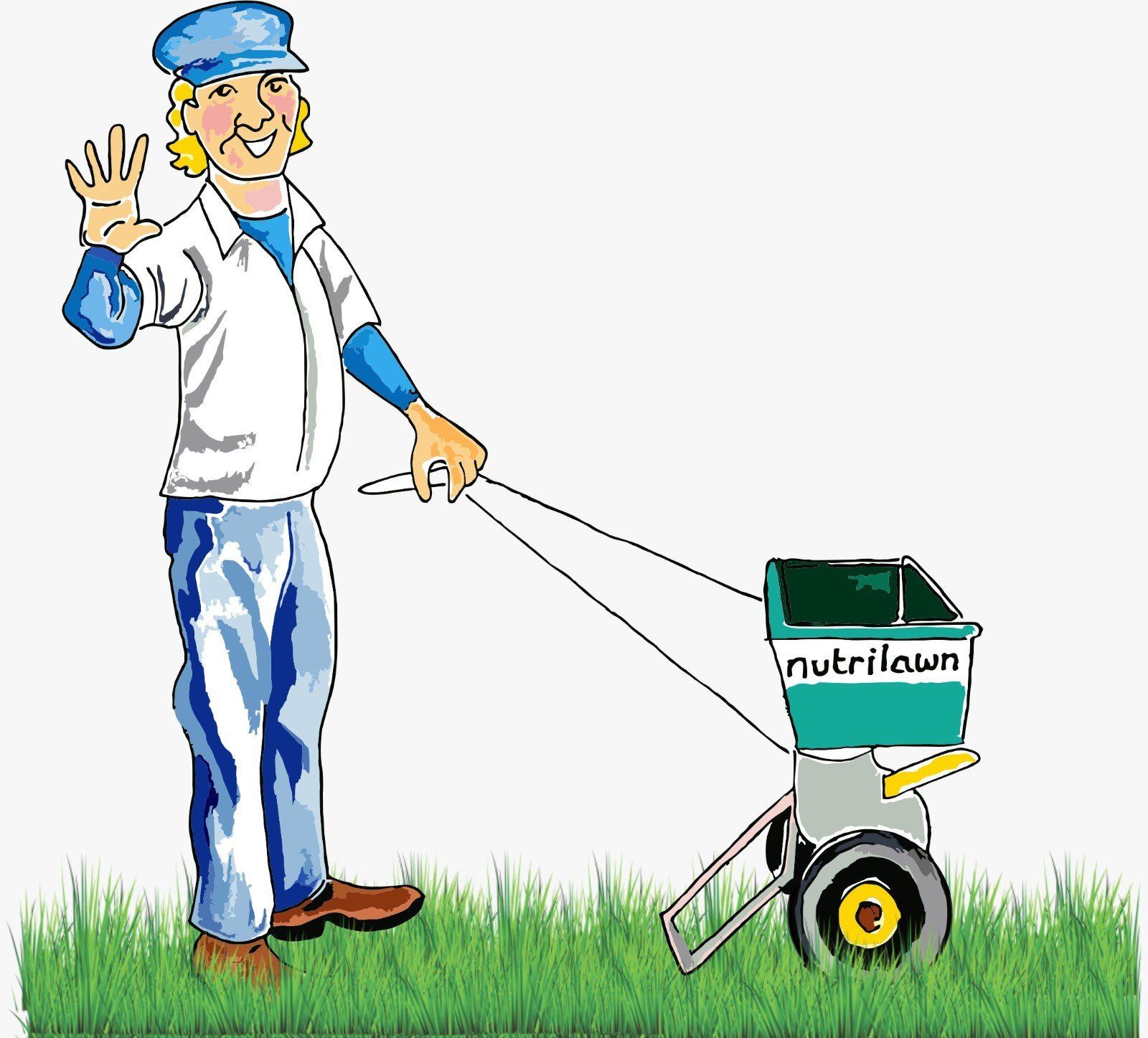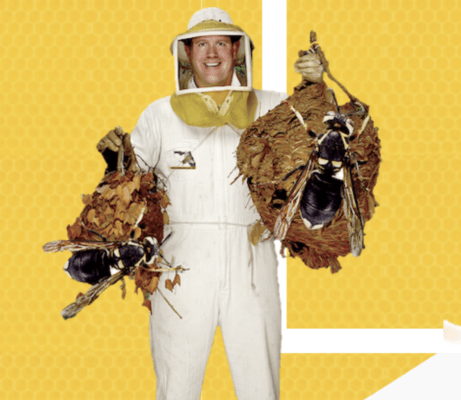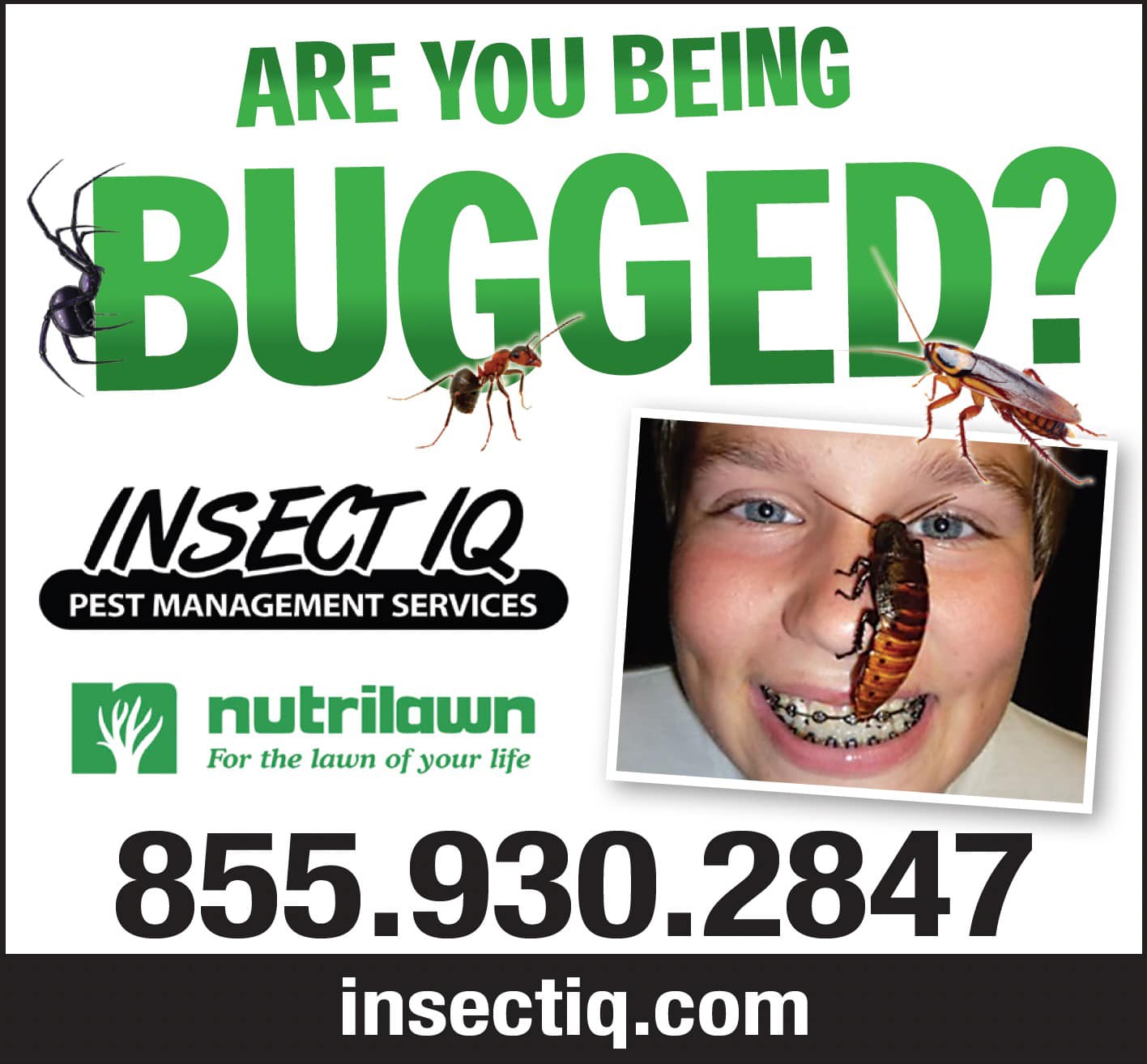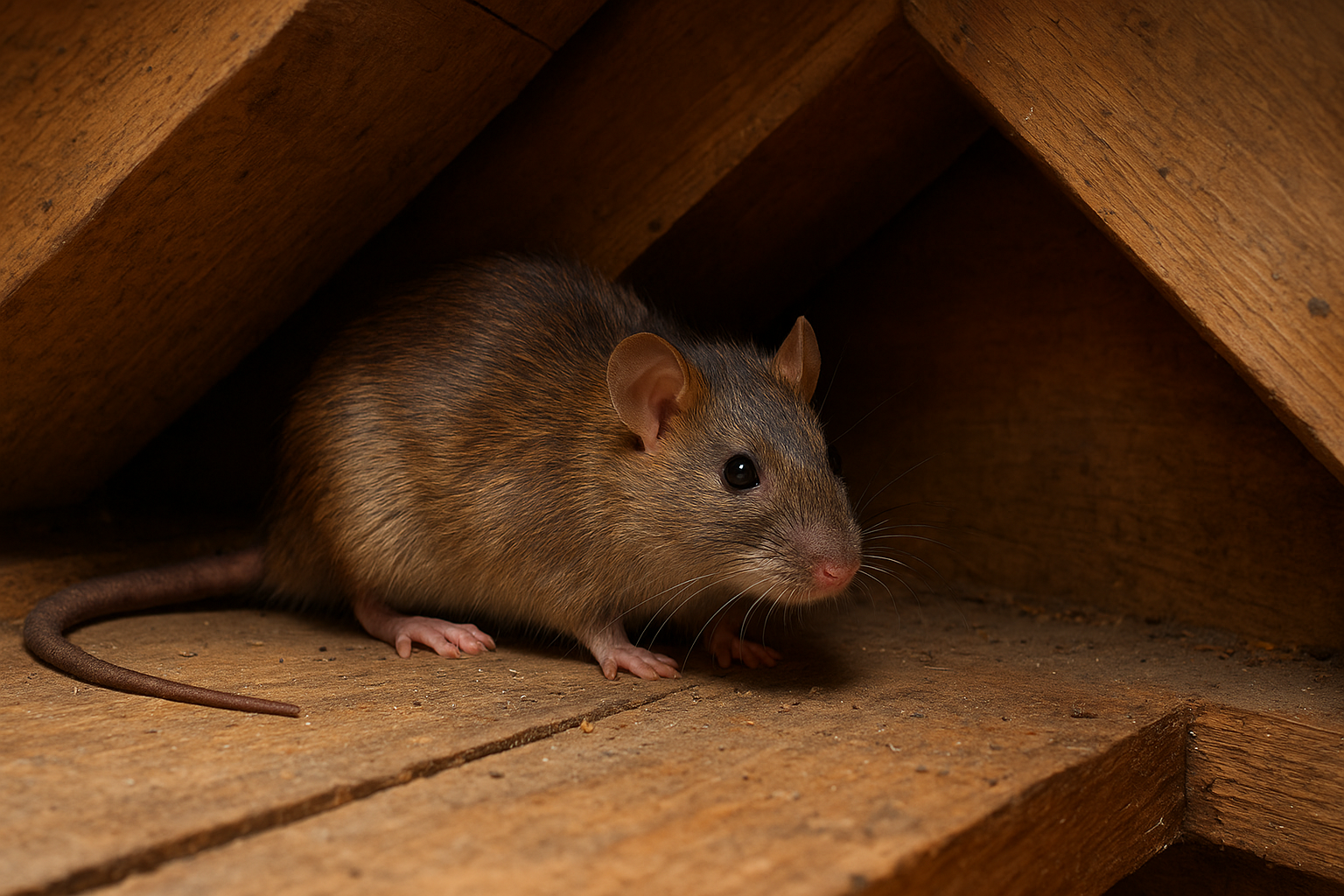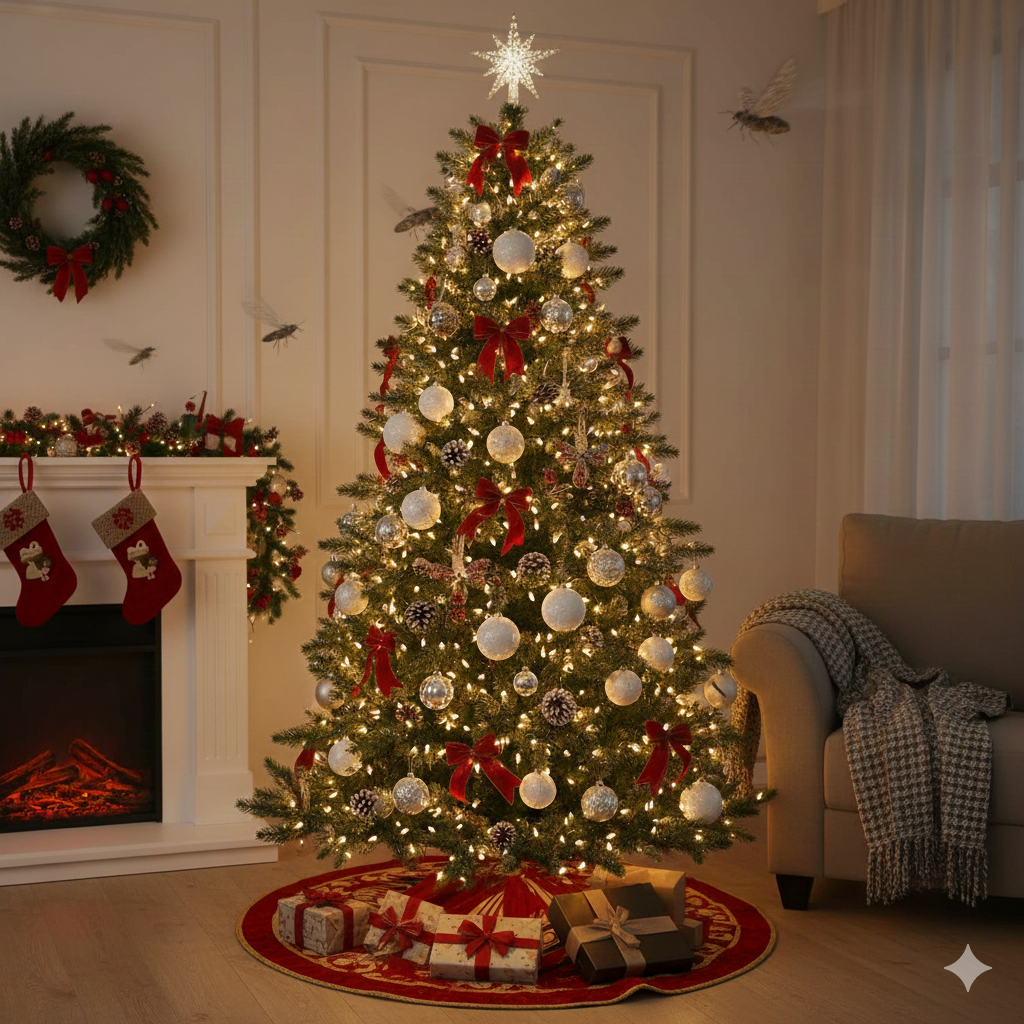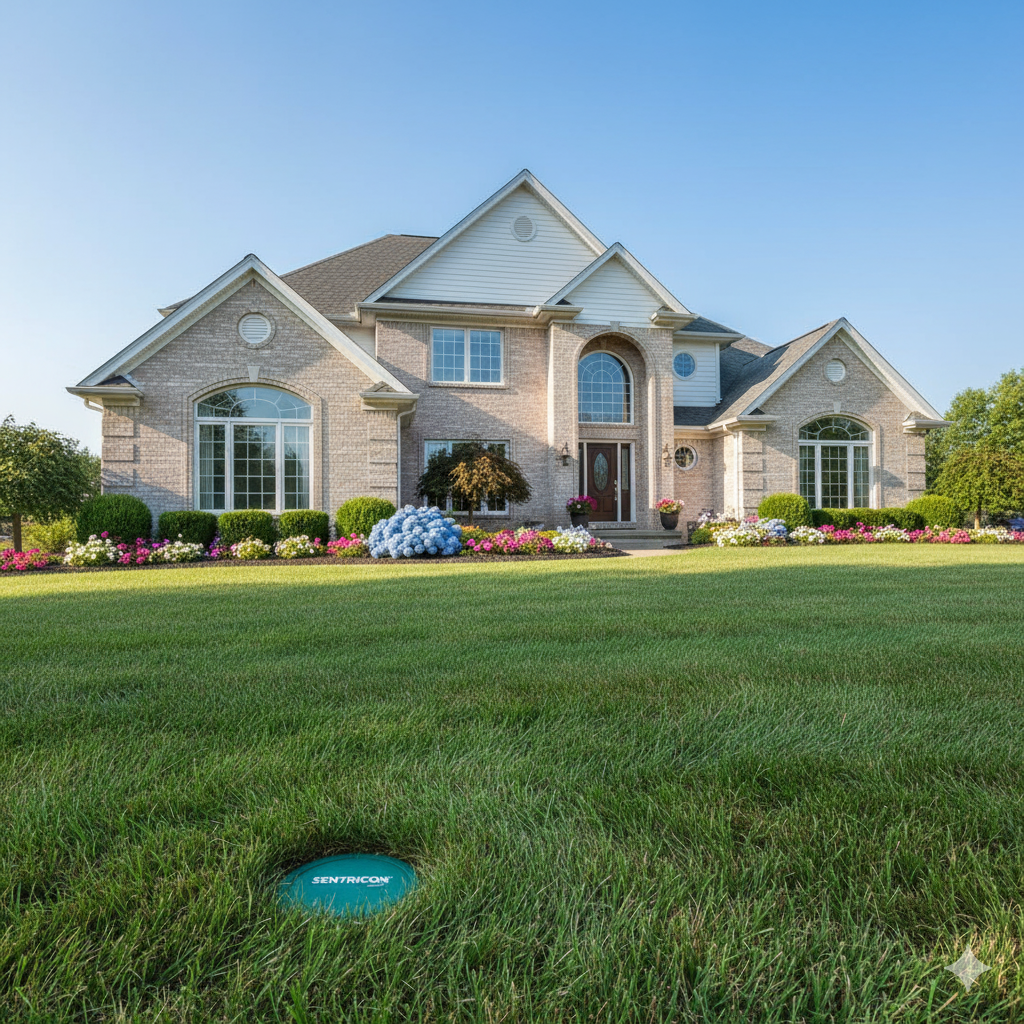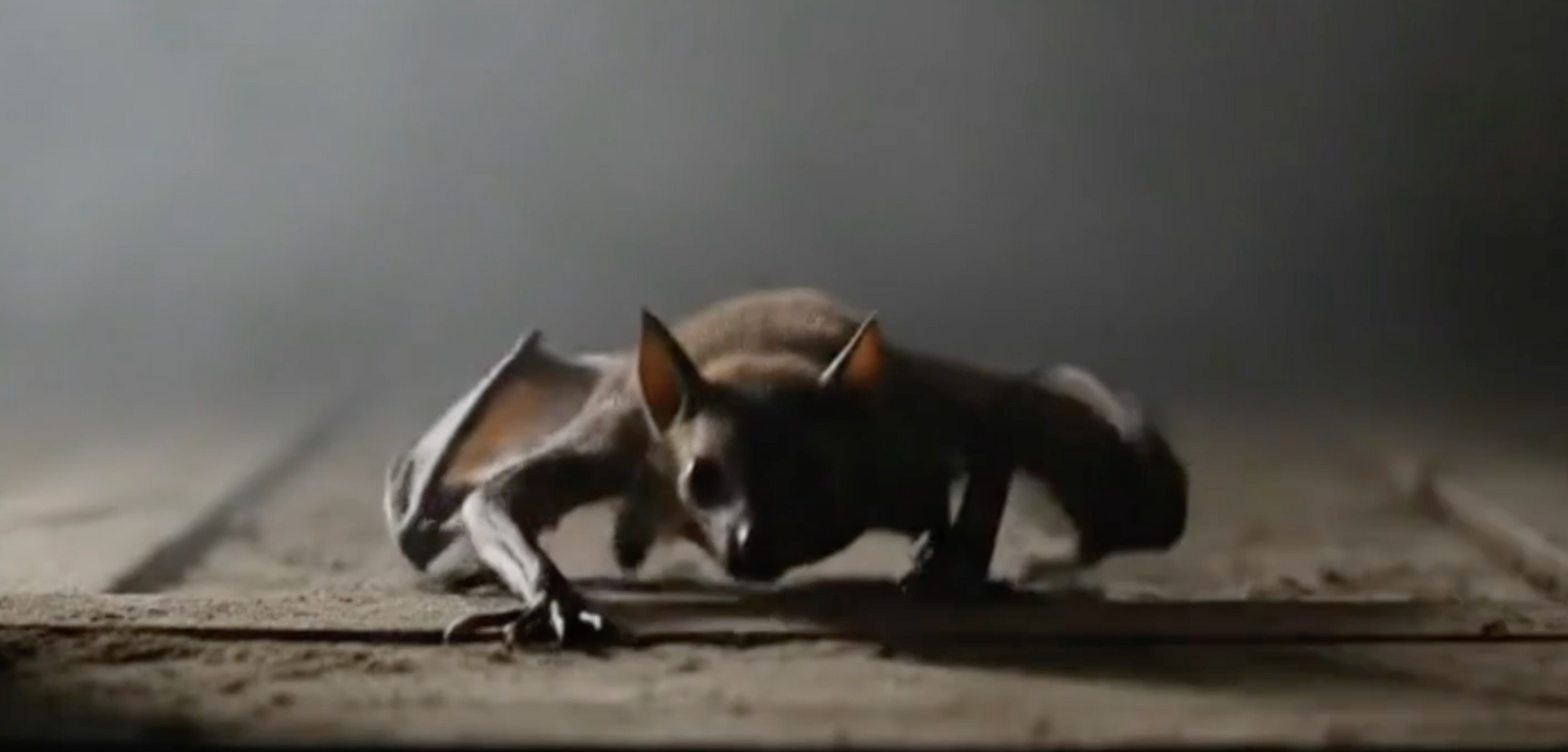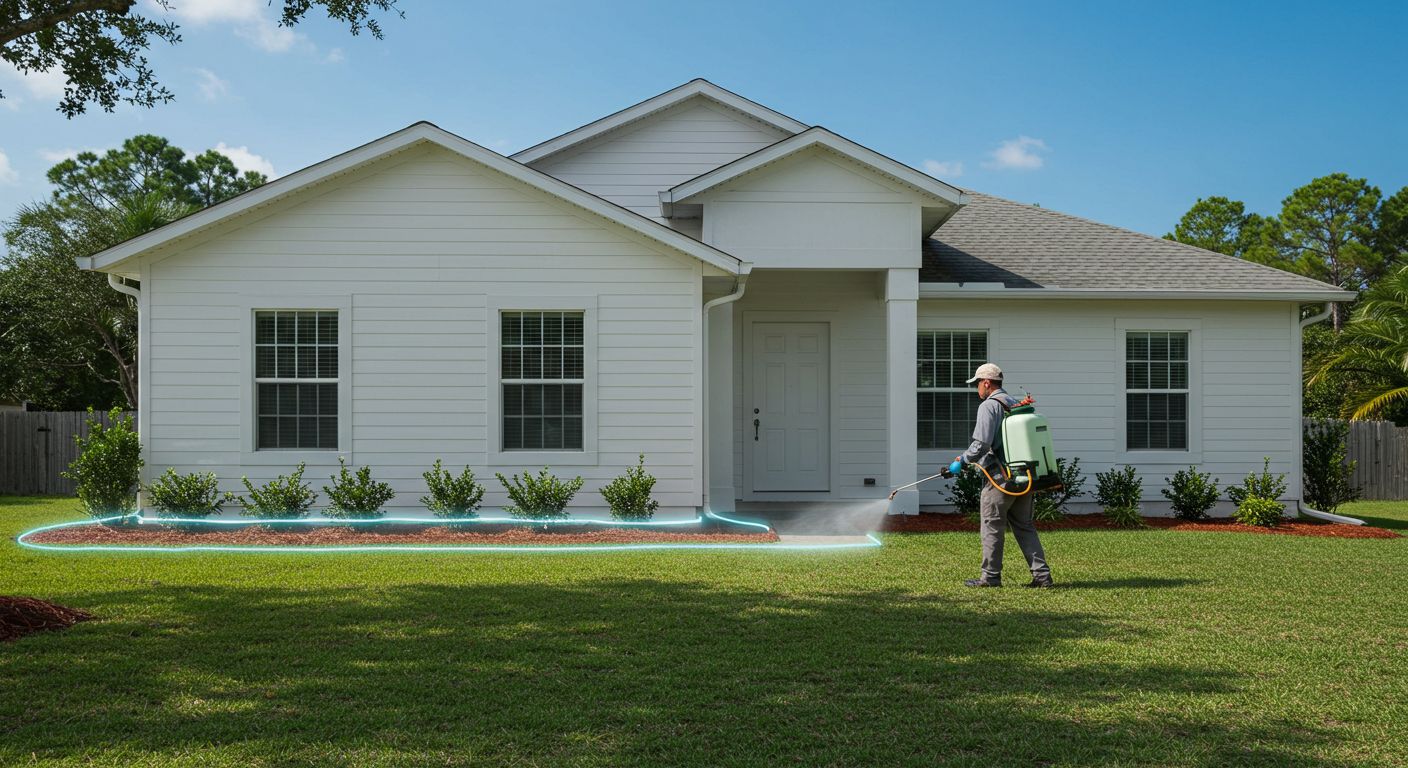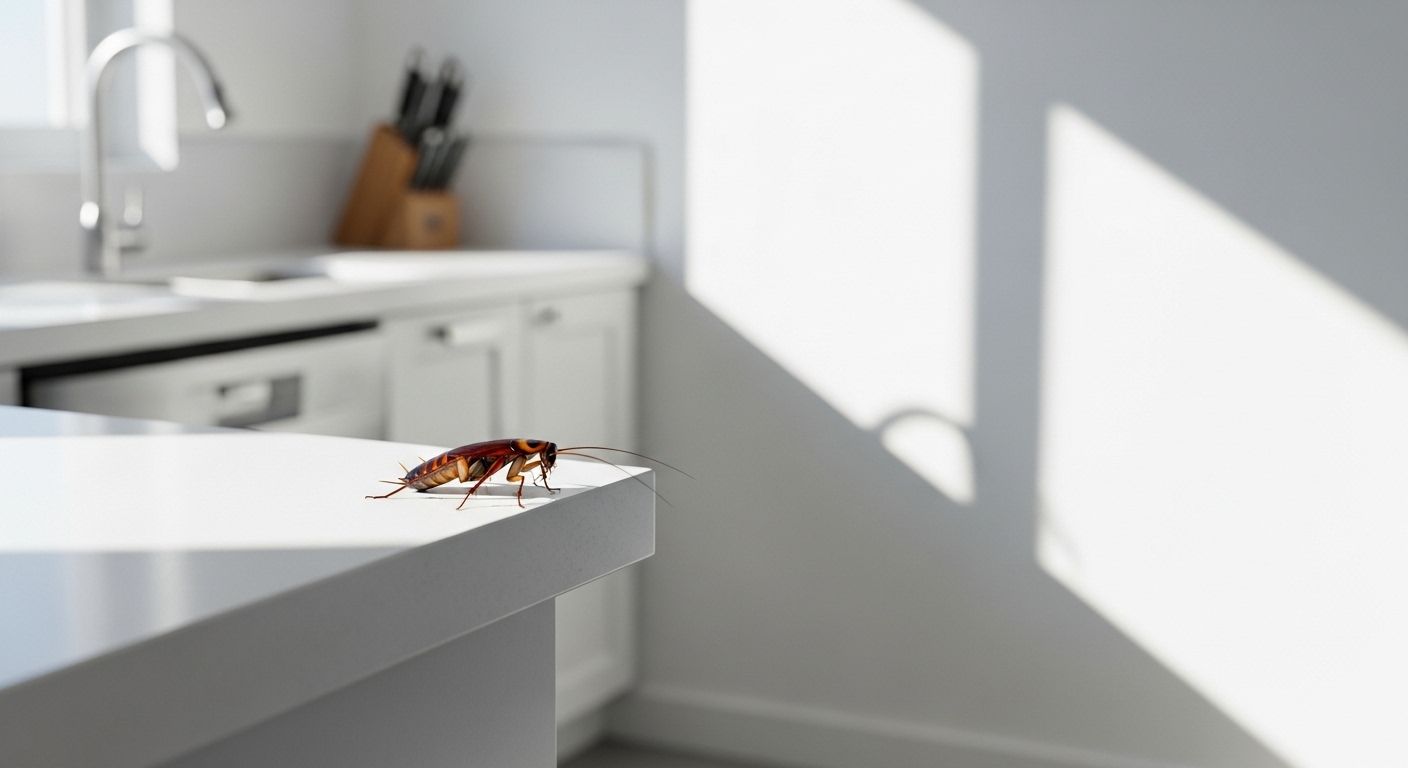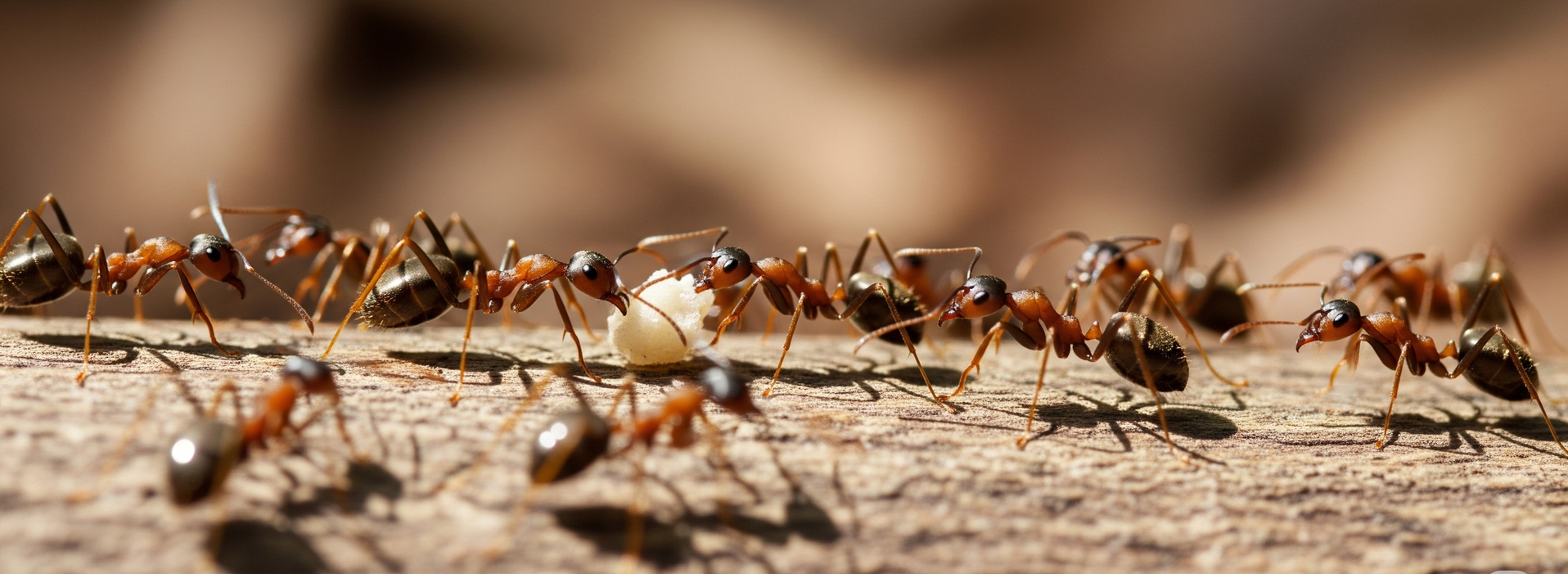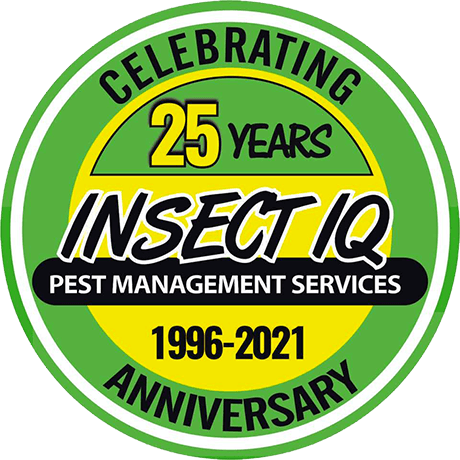¿POR QUÉ HAY TERMITAS ENJAMBREANDO EN MI CASA? ¡PODEMOS AYUDAR!
Lo que debe saber sobre la temporada de enjambres de termitas
Con la llegada de los meses más cálidos y lluviosos, los floridanos deben saber que la temporada de enjambres de termitas es inminente, lo que aumenta el riesgo de infestación en hogares y negocios. Florida alberga muchas ciudades con altas tasas de infestación de termitas. Durante la "temporada de enjambres", es fundamental estar atento a las señales de colonias de termitas alrededor de su propiedad, ya que las infestaciones inadvertidas pueden resultar en reparaciones costosas. A medida que hacemos la transición de los meses de invierno más fríos y secos al clima cálido y húmedo por el que se conoce a Florida, las especies de termitas en Florida tienden a experimentar un fuerte aumento en los enjambres. Infórmese sobre la temporada de termitas en Florida, cómo identificar signos de infestación y cuándo comunicarse con Insect IQ para obtener ayuda.
Programar inspecciones frecuentes y tratamientos preventivos antes de la aparición de termitas es una de las formas más efectivas de prepararse para la temporada de enjambres de termitas en Florida. Póngase en contacto con Insect IQ hoy para programar una inspección GRATUITA de su hogar o negocio. Nuestros especialistas en control de plagas realizarán una evaluación integral de los requisitos de tratamiento de termitas de su propiedad, incluidos los precios personalizados. No espere hasta que la temporada de termitas cause daños a su hogar en Florida. Manténgase a la vanguardia de estas criaturas problemáticas llamando a Insect IQ hoy.
Entonces, ¿qué es un enjambre de termitas?
Cuando se producen enjambres de termitas, grupos de estas plagas, que a menudo suman cientos o miles, vuelan alrededor de un área localizada en busca de un nuevo lugar para construir su colonia. Por lo general, se sienten atraídos por las fuentes de luz, que pueden incluir el interior de su hogar.
Un enjambre de termitas puede durar de 30 a 40 minutos, tiempo durante el cual puede observarlas cerca de ventanas, puertas de vidrio, luces de porches y otras áreas. Pueden ingresar a su hogar a través de puertas abiertas, grietas en ventanas o puertas, sofitos, el garaje o cualquier otro espacio que les permita la entrada.
Si bien los "enjambres" o termitas voladoras no muerden ni pican a personas o mascotas, intentan establecer nuevas colonias. Si tienen éxito, la nueva colonia puede causar un daño estructural significativo a su hogar. La detección temprana y el tratamiento con la ayuda de un profesional pueden eliminar rápidamente estas termitas. Existen varias especies de termitas en Florida, cada una con su propia temporada de enjambre específica, que es el período de semanas o meses en que una especie de termitas deja el nido para volar, encontrar pareja y reproducirse.
Si nota un enjambre de termitas dentro o alrededor de su hogar en Florida, no espere a que haya signos de daños en las estructuras de madera, como áticos, espacios de acceso, fachadas, pisos, marcos de puertas y ventanas, y más. En su lugar, comuníquese con Insect IQ de inmediato. Uno de nuestros profesionales evaluará cualquier posible formación de colonias y administrará de inmediato el tratamiento adecuado.
¿Cuándo es la temporada de enjambres de termitas en Florida?
En Florida, existen varias especies de termitas, cada una con sus hábitos de enjambre únicos. Debido al clima cálido y húmedo de la región durante todo el año, diferentes especies de termitas pululan en diferentes momentos. Si bien las señales ambientales específicas que provocan un enjambre de termitas siguen siendo algo desconocidas, generalmente se entiende que algunas especies forman enjambres en respuesta a la alta humedad o temperatura, mientras que otras pueden hacerlo durante el día o la noche. Aunque todos los enjambres de termitas comparten características comunes, como tener cuatro alas, una antena recta y una cintura ancha, existen diferencias sutiles en el color y el tamaño que solo un profesional capacitado puede detectar analizando la nervadura de las alas. Consulte la lista a continuación para conocer las especies de termitas comunes en Florida y los meses y las condiciones en las que suelen pulular. Sin embargo, tenga en cuenta que estas distinciones pueden ser difíciles de detectar, por lo que es mejor consultar con un inspector experto.
Termite swarm season in Florida, by species:
The Eastern Subterranean Termite is a native subterranean termite species found in Florida. Its swarming season typically spans from November to May, with the highest intensity observed between January and April. This small and dark-colored termite species usually swarms during daylight hours, and often discards its net-like wings close to windows.
The Dark Southeastern Subterranean Termite, which is another native subterranean termite in Florida, shares some similarities with the Eastern Subterranean Termite. This species typically swarms during warm and sunny days and has a dark coloration. However, their swarm season is different, occurring from mid-October through June, with the highest intensity from March to May.
The Light Southeastern Subterranean Termite, although considered less of a threat to structures in South Florida, can still cause infestations. It is the last of the native subterranean termites and has a swarm season from November to March, with the most intense swarming occurring between December and February. Unlike other native subterranean termites, this termite is light in color and swarms in the evening. Because of this, it has a history of being misidentified as a Drywood Termite, making it crucial to have a qualified inspector to properly identify the species.
The Formosan Subterranean Termite is an invasive and exotic species of termite that has become established in South Florida, and has rapidly spread along the coastlines. This termite is of particular concern to homeowners, due to its potential to cause damage. It is a large, yellow-colored termite with a hairy appearance, and it can be found swarming between the months of March and July.
The Asian Subterranean Termite is similar in appearance and closely related to the Formosan Subterranean Termite, but it is typically characterized by a darker orange-brown color on its back while its belly maintains the characteristic yellowish color of the Formosan termite. This termite has a swarm season that peaks from March to May but can start as early as February.
To prevent termite infestations in your home or business, it's crucial to take action before the swarming season hits in the Spring and Summer. Delaying the call to a professional after noticing termites swarming inside the property may result in an existing or upcoming infestation, leading to significant damage. Contact Insect IQ now for a complimentary inspection and a customized treatment plan. Furthermore, homeowners can employ useful tips and techniques to minimize their risk of being invaded by swarming termites.
To defend against termite swarming season in Florida, it's important to have knowledge on what to look for, how to make your home less attractive to termites, and when to call for professional help. With over 35 years of experience, Insect IQ is equipped to help Florida homeowners prevent and treat termite infestations. Our inspectors are trained by two University Entomologist, and can conduct a thorough property inspection and discuss with you the best ways to reduce the risk of infestation, including preventative treatments. Protect your home, your biggest investment, by preparing for termite swarming season with Insect IQ.
Contact us today to learn more about our termite prevention and treatment options. Just call Insect IQ.
Insect IQ has been servicing the Tampa Bay community for over 25 years. We are family-owned, we are local, and we are proud to call ourselves a small business. We provide jobs here in the Tampa Bay area and believe every homeowner is more than a number. We are a member of our community and you deserve the best pest control service.
CONTACT US 855-930-2847
Pest Control License Insect IQ JB131270
Certified Pest Control Operator JF8248 1994
Pest Control, Lawn & Ornamental, Termite, Fumigation
State of Florida Registered Beekeeper: FL0290619S
1994 UF Entomologist Jonathan Simkins
2020 UF Entomologist Britton Simkins
